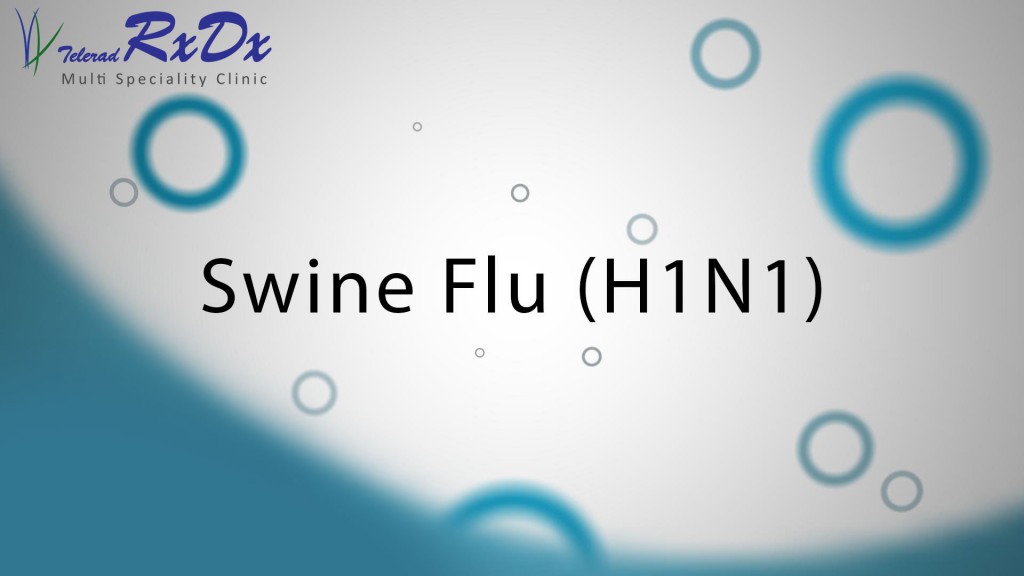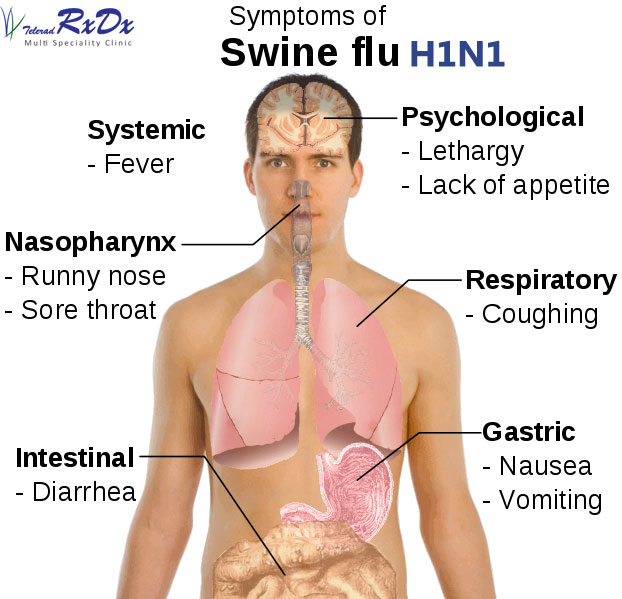
H1N1 commonly known as Swine Flu is an acute respiratory disease. It was initially detected in people who had direct contact with pigs. However, the recently reported cases showed the emergence of a new virus H1N1 that has been reported in people who had no contact with pigs.
Due to its rapid spread around the world, in 2009, WHO declared it a pandemic disease.
In India, it was reported predominantly in the states of Andra Pradesh, Telangana, Maharashtra, Karnataka and West Bengal.
Causes
Swine flu virus infects the cell lining of nose, throat, and lungs. The virus mutates very fast and the currently circulating strains in India as per WHO are predominantly H1N1 followed by A(H3N2) and B viruses. Some of these strains infect only animals and birds and whereas other strains infect only human.
Spread
One can get infected by the droplets from a cough and the sneeze of the infected person. When an infected person sneezes or coughs, they release multiple tiny droplets. If you come in contact with these drops or touch a surface where the drops landed you’ll be exposed to the infection.
Population at risk
- People who are 65 yrs and older.
- Chronic conditions like Asthma, Diabetes, Heart and other Respiratory problems
- Pregnant women
- Young children are at high risk. Children with lethargy, low appetite, breathing difficulty are also considered in the high risk category.
Signs and Symptoms
Some people are at higher risk for becoming seriously ill if they are infected with swine flu.
- High grade fever with chills
- Headache
- Body ache
- Cough and cold
- Sore throat
- Running nose
- Vomiting
- Severe tiredness.
- Stuffy nose/running nose
- Fatigue

Diagnosis
The detection is done through nasal and throat swabs. Theses swabs are then analyzed using various laboratory techniques to identify the specific type of virus. Routine blood test is also done to differentiate between bacterial and viral infection.
Treatment
- Usually anti-viral drugs are the first line of treatment administered for swine flu. But it is important to check with your doctor before starting on any anti-viral.
- Do not take any antibiotics as they won’t be effective because flu is caused by virus and not bacteria.
- Over the counter medications can provide symptomatic relief from the cold and cough.
- Do not give aspirin for kids below 18years as it increases the risk of Reyes Syndrome.
Complication
If left untreated, H1N1 can complicate into
- Pneumonia
- Bacterial infection
- Dehydration
- Acute respiratory distress syndrome
- Multi organ failure
- Death
Preventing H1N1 Swine Flu
While you are still healthy and not showing any symptoms of H1N1 infection, in order to prevent proliferation, aggravation of symptoms and development of secondary infections, some very simple steps, not fully highlighted in most official communications, can be practiced (instead of focusing on how to stock N95 or Tamiflu):
Check Steps to Prevent H1N1 Swine Flu….




